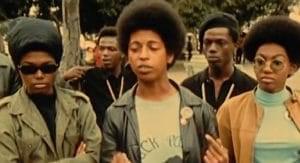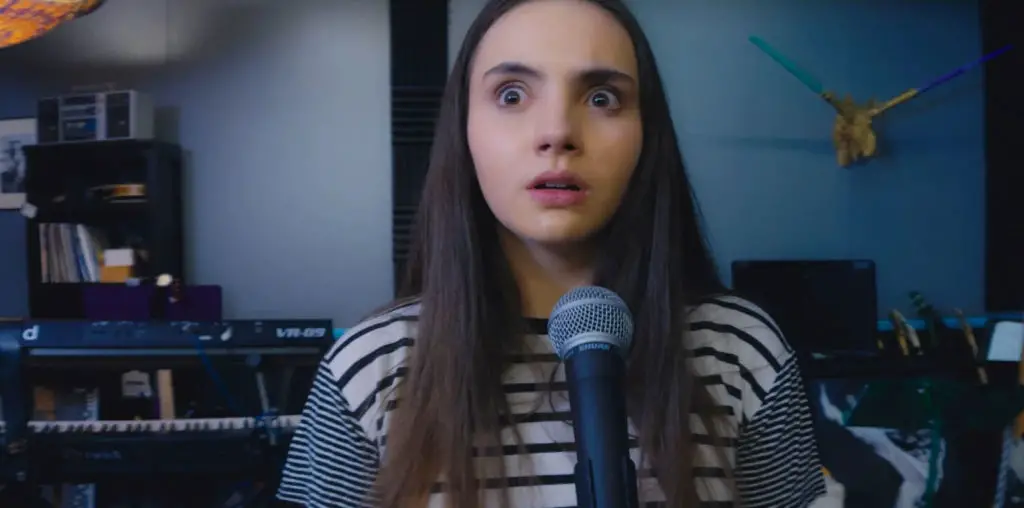
50 years ago, during the year of the Vietnam War, the French Student Protests, and global social upheaval, Agnès Varda happened to be in Oakland, California. On the recommendation of Berkeley resident Tom Luddy, who would later become the writer of Godard’s King Lear, producer of classics such as Mishima and Werner Herzog Eats His Own Shoe, and founder of the Telluride Film Festival, she traveled up from Los Angeles while in California for her husband Jacques Demy’s film Model Shop to witness the ascendant political phenomenon brewing in the Bay Area. On four separate Sundays, she borrowed a 16mm camera from UC-Berkeley student protesters and collaborated with Luddy on a short documentary about the revolutionary Black Panther Party that would later be known as both Black Panthers and Huey.
What the French New Wave auteur documented in Oakland has become the source material for Hollywood in 2018. Marvel’s Black Panthers, Boots Riley’s Sorry To Bother You, Spike Lee’s BlacKkKlansman, and the Daveed Diggs production Blindspotting all incorporate at least a nod to The Black Panther Party, a political movement that offered free meals to children, protection from the police, and leftist revolution for and by the black community. It has taken 50 years for the BPP to find this kind of Hollywood limelight, but the pioneering Varda, at that time already six years past her first Palme d’Or nomination, was there in the moment to disseminate the message far and wide.

“…a political movement that offered free meals to children, protection from the police, and leftist revolution for and by the black community.”
“This is no picnic, it’s a political rally organized by the Black Panthers,” she opens in French, which is re-narrated in English by philosophy professor Denise Warren. Varda’s approach was the quintessential documentary – talking head interviews, political speeches, interstitial narration. With her iconic voice replaced in the translated film, you would never guess it was made by the preeminent feminist auteur. Instead, she prioritized the voice of the Panthers, allowing their politics to resonate without white filters.
The Panther’s strength of voice was inspiring to Varda, who was seeking liberation for the female voice herself. After a recent screening in NY, Varda recounted that she was impressed by the way The Panthers were writing their own histories and philosophies in a time when white men were tightly controlling the public narrative: “I really thought it would change the history of black people, everybody thought that.” But in 1968, even French television, a notoriously radical entity, was afraid to associate with the short film. As Varda remembers, the channel that had signed on to televise Black Panthers changed their mind after seeing the film, fearing it would reignite the student protests that had shocked the country in May of that year.

“…she prioritized the voice of the Panthers, allowing their politics to resonate without white filters.”
This film, which streams for free on archive.org, serves as a blueprint for resistance from the forebears of the fight that continues today. Varda describes the education gleaned from Marxist revolutions, the armed BPP forces tailing cop cars to protect black citizens from police brutality, and the role of white radicals in the struggle. She explains the implication of the Black Panther, which never attacks but ferociously defends itself. She details the murder of Bobby Hutton, the first member of the Black Panther Party who was murdered at the age of 18. We learn about the significance of the afro hairstyle from Eldridge Cleaver’s wife Kathleen Cleaver. The 10-Point Program, the manifesto of the BPP, is spelled out by BPP Captain Bill Brent.
Perhaps most compelling is the jail cell interview with BPP Founder Huey P. Newton, awaiting trial for his case that would eventually be acquitted. Newton describes the restriction of his access to books, the strict surveillance, and the evolution of his organization’s efforts.
Like all great documentarians, Varda was in the right place at the right time. The paramount Free Huey rally on Newton’s birthday? It’s in the film. The schoolyard lineup? In the film. Inside the jail cell with Mr. Newton? Go watch them film! The one place she wasn’t: Paris in May of 1968 during the now legendary student protests, a monumental moment for any progressive journalist. But in a 2009 article in the Independent, Varda explains her lack of remorse for choosing Oakland over Paris: “What we found was a real desire for brotherhood that was magnificent, that wasn’t just about making demands. I wasn’t [in Paris], that’s all there is to it—but I saw things they didn’t see.”

Black Panthers (AKA Huey) (1968) Directed by Agnès Varda. See Full Film at Archive.Org
9 out of 10 Oscars

